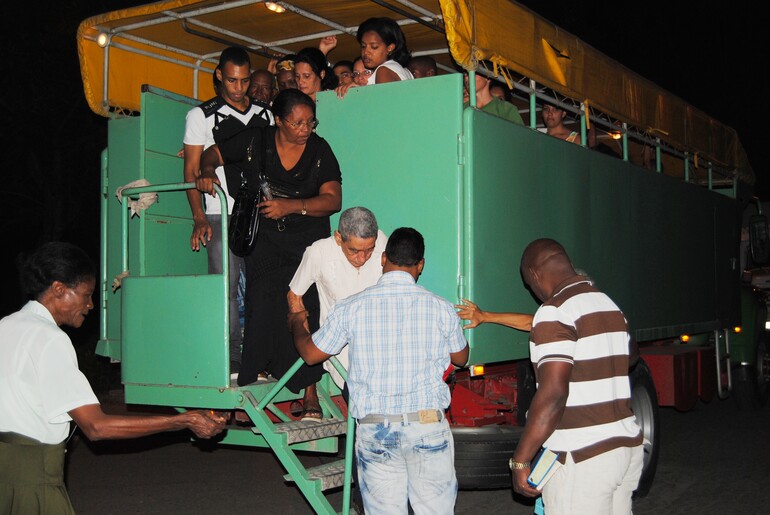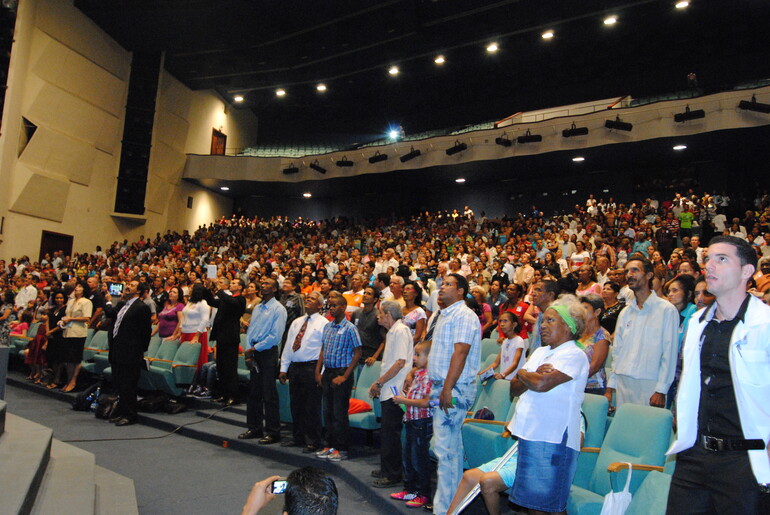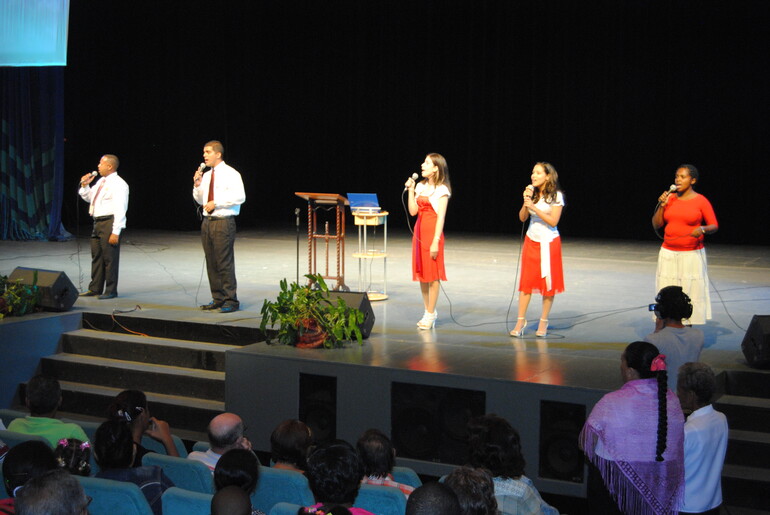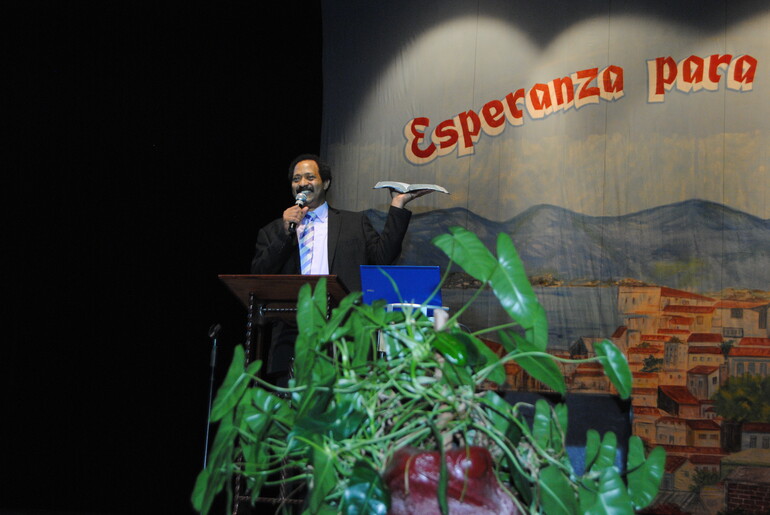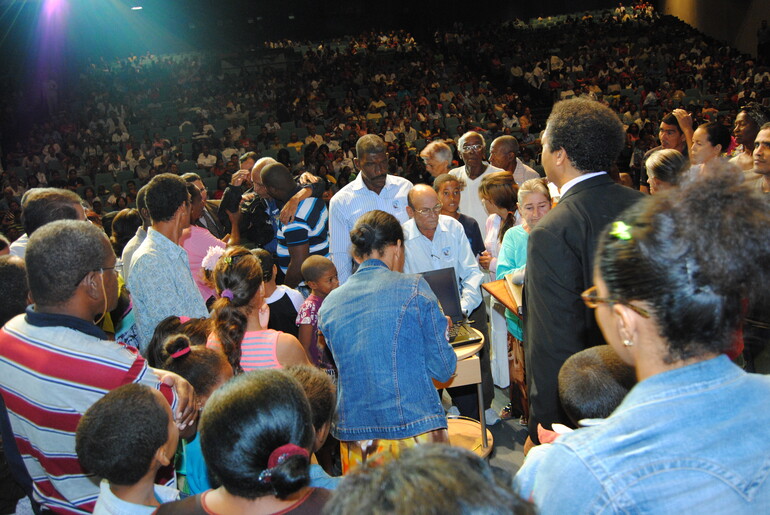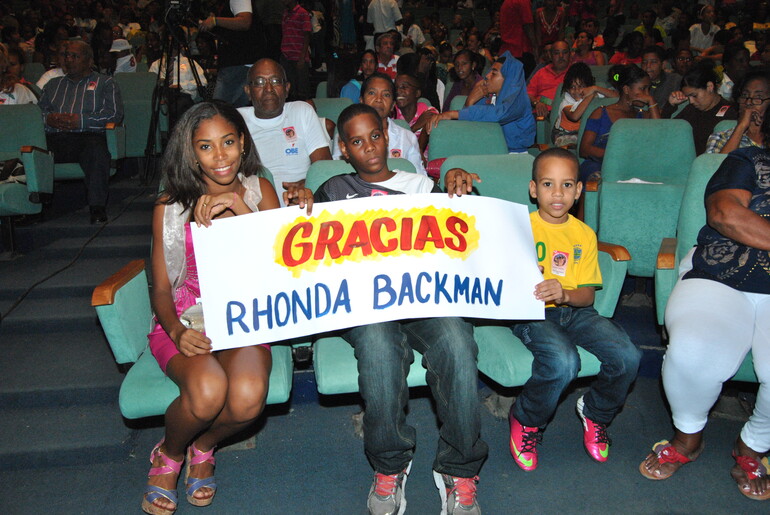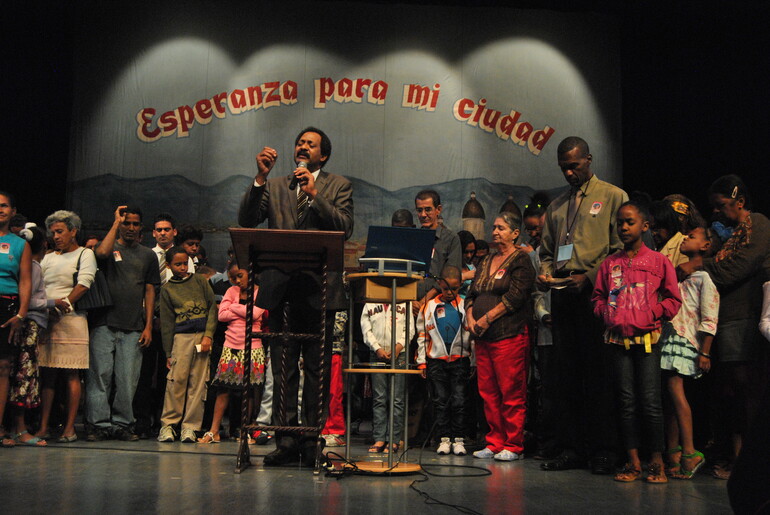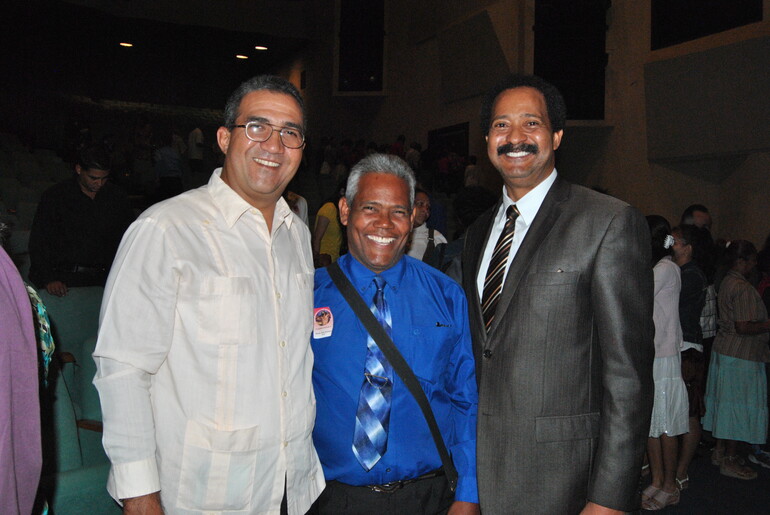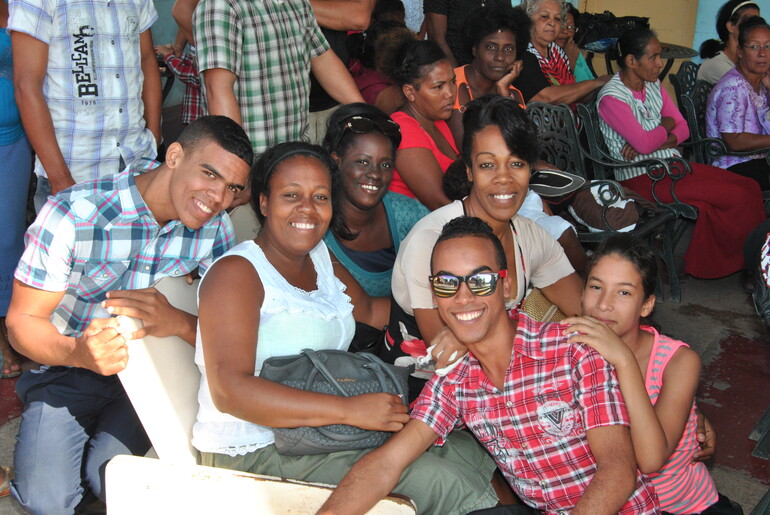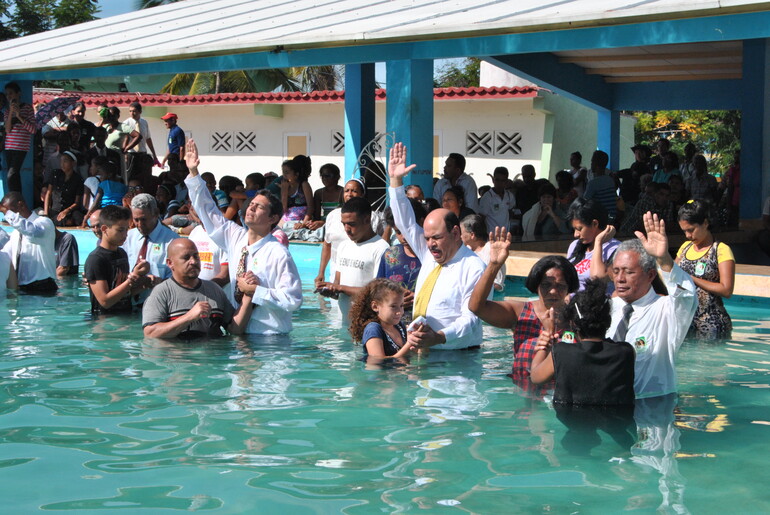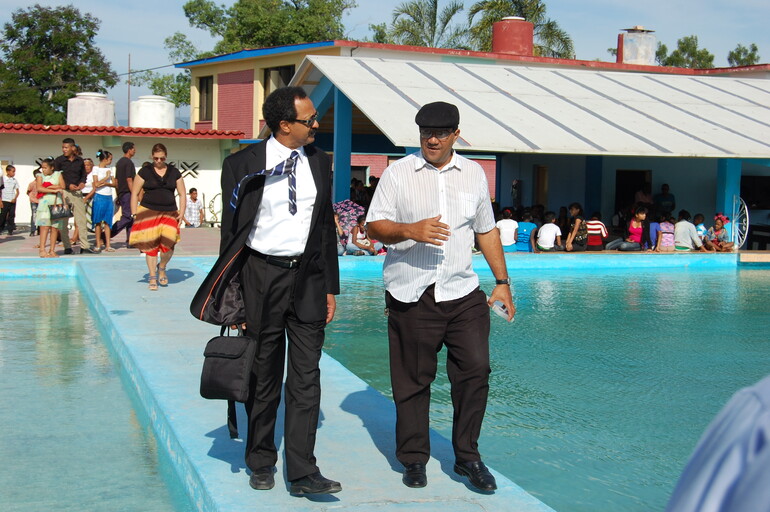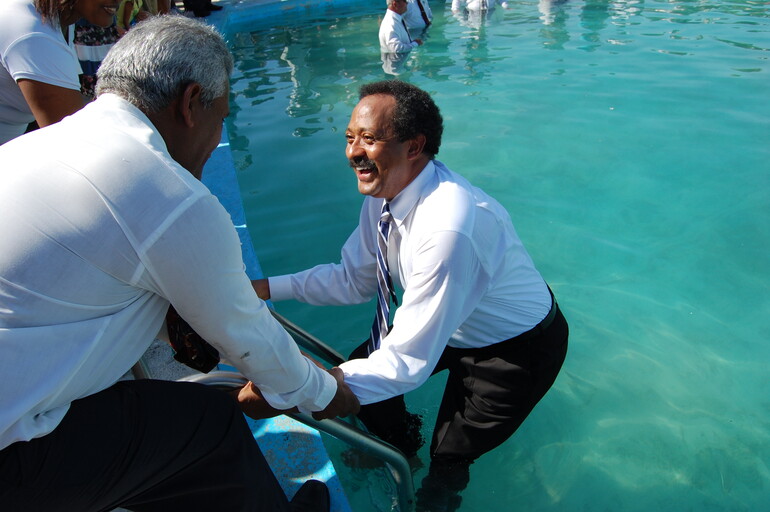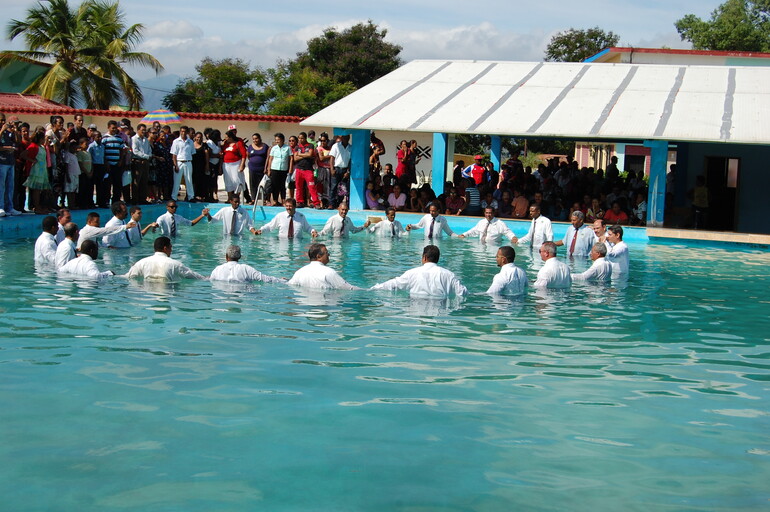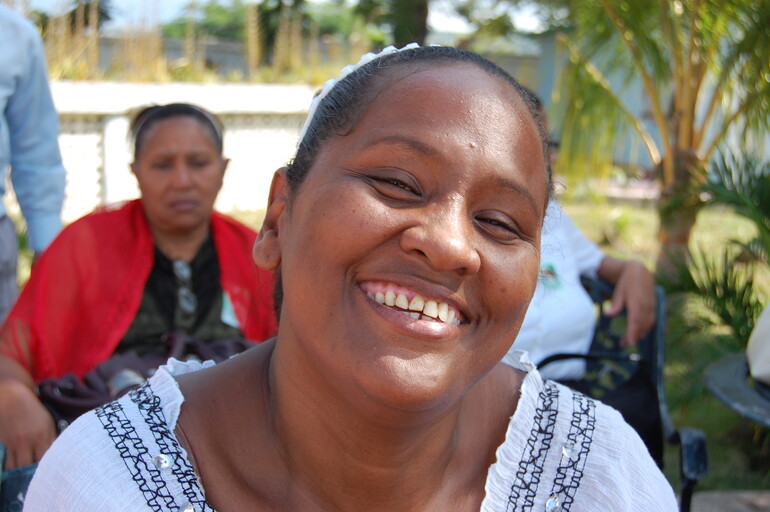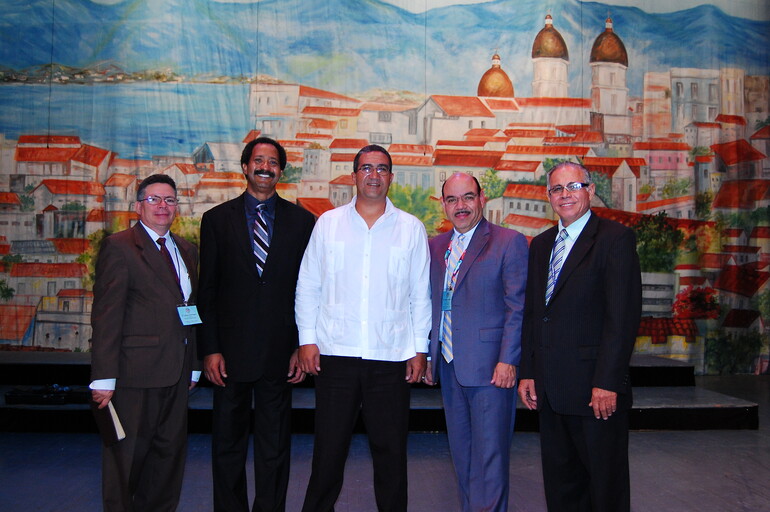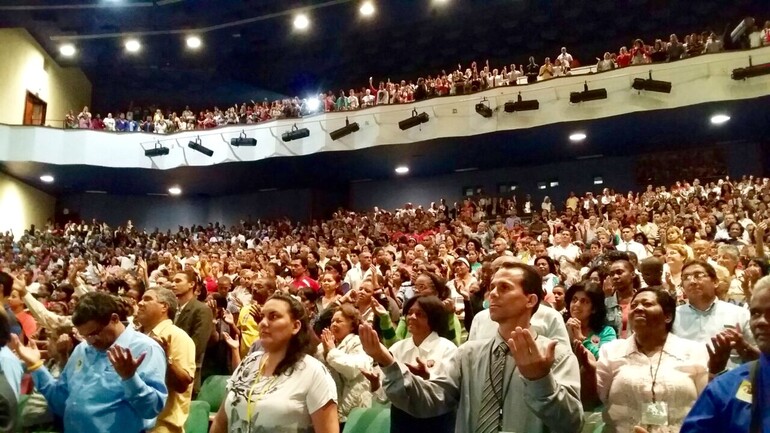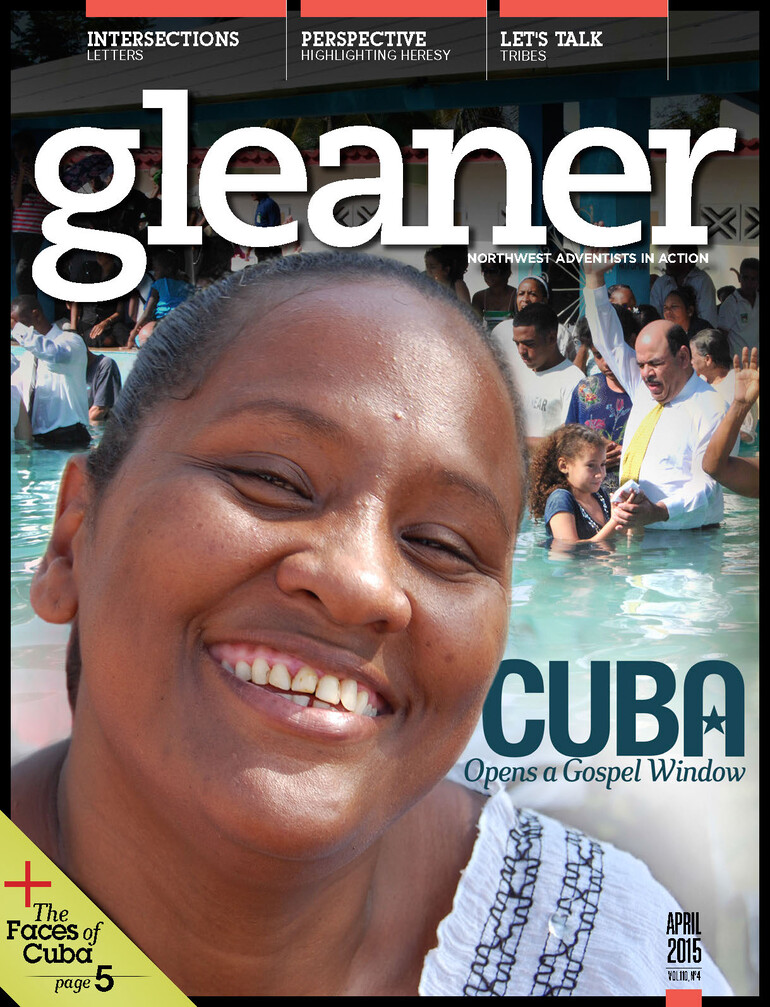Cuba may not regularly be on the personal radar of most Northwest Adventists, but worldwide evangelism has long been an active value within our members. When a unique window for gospel ministry opened there recently, one of our leaders, representing the North Pacific Union Conference's commitment to global mission, was there ready for action.
One week before the United States and Cuba announced intentions to restore diplomatic ties in December, Ramon Canals, North Pacific Union Conference vice president for Hispanic ministries, stepped onto the stage of a Cuban auditorium. He faced a sea of faces in seats often occupied by communist government leaders. But this was no political moment. Canals recognized this as an amazing opportunity for the gospel in one of the unlikeliest places.
Local Adventists from the country’s second largest city, Santiago de Cuba, had become familiar with Canals 15 years before when he presented meetings in the two existing churches. When the East Cuban Mission determined to join the world church’s mission to big cities with a major event in Santiago de Cuba, local leaders requested that Canals be the featured speaker. CPL (Changing People’s Lives) Ministries based in Loma Linda, California, agreed to help with funding to attract public awareness.
The Heredia Theater in Santiago de Cuba seemed like the ideal spot — well-known and with capacity for up to 3,000 people. Obtaining permission from communist government leaders, though, proved to be lengthy and less than certain. Rules typically prohibit any overt proselytizing through public meetings. The government office initially agreed to only one night, whereas local church leaders lobbied for a weeklong series. Negotiations began more than a year in advance, but less than three weeks from the announced start of the meetings no contract had been signed.
CPL, the project sponsor, wondered if the event should be canceled. Even at home in Northwest, roadblocks appeared. Canals and his wife were in a serious accident. It would have been easy to pull the plug — to say, “God must be closing the door.” But instead Canals convinced project leaders to persevere. “There were more than 1,000 people taking Bible studies and 300 or so Bible workers giving 50 to 100 studies per month,” he recalls. “I could see a lot of signs that God was leading and that we should move forward in faith.”
The event was scheduled for the week of December 7–13, 2014. Canals arrived in the city on December 5. He was shocked to discover that, still, no agreement had been finalized and signed. Last-minute, urgent negotiations finally secured an agreement to use the auditorium mere hours before doors were to open. An additional two meetings were arranged to be held in local churches, filling out the weeklong series.
Cuba is making progress towards religious freedom as we understand it in this country. There is tolerance to a point, as long as certain parameters are in place. In conjunction with CPL and the local church leaders, Canals had designed his presentations around a theme that passed muster with the authorities. It carried a focus of good citizenship and personal growth: Esperanza Para Mi Ciudad, or Hope for My City.
And so, on December 8, Canals brushed his dark suit, polished his shoes and got ready to step out onto the stage to see what God would bring in this second largest city in Cuba. He didn’t have long to wait.
Trucks began arriving at the site, filled with hundreds of people who had ridden for one to two hours, jostling with their fellow travelers. But they were excited to come to such a prominent venue to hear a speaker from the United States. Communist guards served as gatekeepers, making sure that people had a sticker that granted them permission to enter the building.
When Canals stepped out on the stage, more than 2,000 were in their seats. The communist minister of religion intended to greet the audience and stay for 10 minutes, but he stayed for the entire meeting, right in the front row. Canals chose his words carefully but led the audience in a gospel-centered message. The next night even more seats were full — and the communist leader was back for more. He came to every meeting. On Thursday evening, the night that was supposed to be just a concert, he was on the front row and 21 of his fellow communist officials were in the audience. After listening to three songs, he said, “That’s enough. Everyone is waiting for the sermon!”
Each night, the attendance grew toward the hall’s capacity of 3,000. Each night, Canals invited those who wished to follow Jesus (and be positive citizens of their country) to come forward and join him on the stage for special prayer. Each night, 150 to 200 gathered for that personal commitment.
By the final day, Saturday, December 13, hundreds were ready for baptism. Where could such a large baptism take place? Once again, the provincial minister of religion stepped in to help. He arranged for a local hotel swimming pool to be available for two hours.
After a final meeting at the hotel, 24 local pastors, with Canals included, jumped into the pool. Baptismal candidates began lining up beside each pastor. In one hour, more than 350 new converts were baptized in that pool. The minister of religion stood in the crowd, witnessing the area’s largest Adventist baptism in nearly 60 years.
The event has inspired a greater awareness of the Adventist Church and the gospel message. More than 2,600 people have indicated a desire to study further and be baptized later this year.
Canals says he was impressed with the hunger the Cuban people showed for the Word of God even though they have been steeped in communism and atheism for decades. He hopes there will be more opportunities for a people so open to truth. “The challenge for us as Northwest members and our church as a whole,” he observes, “is to continue to reach out to Cuba while the people are still hungry. Remember Russia. Doors that are open for a while can shut just as quickly.”





